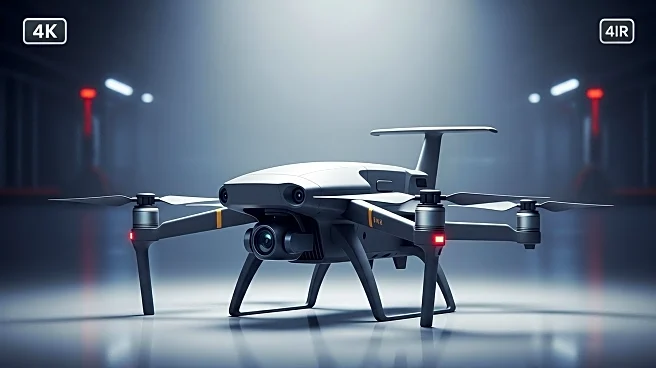What's Happening?
Denmark has implemented a ban on all civilian drone flights in anticipation of a European Union summit in Copenhagen. This decision, announced by the Danish transport ministry, aims to enhance security measures and prevent disruptions caused by foreign drones. The ban follows a series of drone sightings over Danish military sites, which have raised security concerns. In response, defense ministers from ten EU countries have agreed to establish a 'drone wall,' and NATO has increased vigilance in the Baltic region. The ban will remain in effect until October 3, with violations potentially resulting in fines or imprisonment. Sweden and France have pledged support to Denmark by providing military anti-drone capabilities and expert teams.
Why It's Important?
The ban on civilian drones underscores the heightened security measures being taken by European nations in response to potential threats. The incidents of unidentified drones over military sites highlight vulnerabilities in airspace security, prompting coordinated efforts among EU countries to address these challenges. The situation reflects broader geopolitical tensions, particularly with Russia, which has been accused of hybrid attacks. The ban and subsequent security measures are crucial for ensuring the safety of the EU summit and maintaining regional stability. The involvement of NATO and EU countries signifies a collective approach to countering perceived threats, emphasizing the importance of international cooperation in security matters.
What's Next?
As the EU summit approaches, Denmark and its allies will continue to monitor and respond to any potential drone threats. The establishment of a 'drone wall' and increased NATO vigilance are expected to deter further incidents. Investigations into the origins of the drone sightings are ongoing, with Danish authorities not ruling out Russian involvement. The outcome of these investigations could influence future security policies and international relations. Additionally, the effectiveness of the current measures will be evaluated, potentially leading to more permanent solutions for drone-related security issues in the region.









